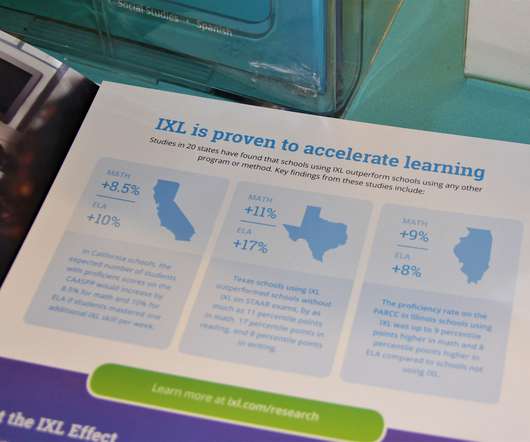Online program expands to combat early learning disruptions caused by coronavirus closures
The Hechinger Report
MAY 15, 2020
A growing body of research shows that children who start kindergarten without a firm grasp of the basics are more vulnerable to poor academic outcomes in later grades. Families at or below 200 percent of the federal poverty guidelines (an income no higher than $52,400 for a family of four) qualify to sign up.














Let's personalize your content